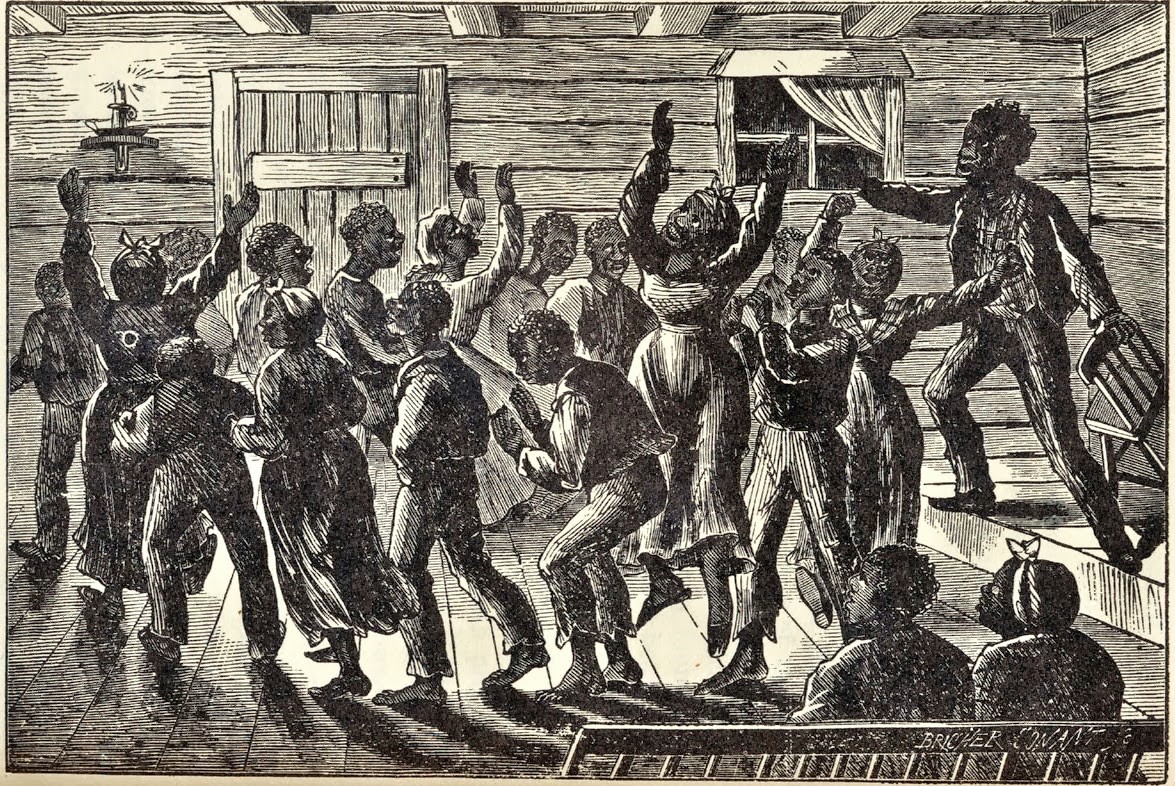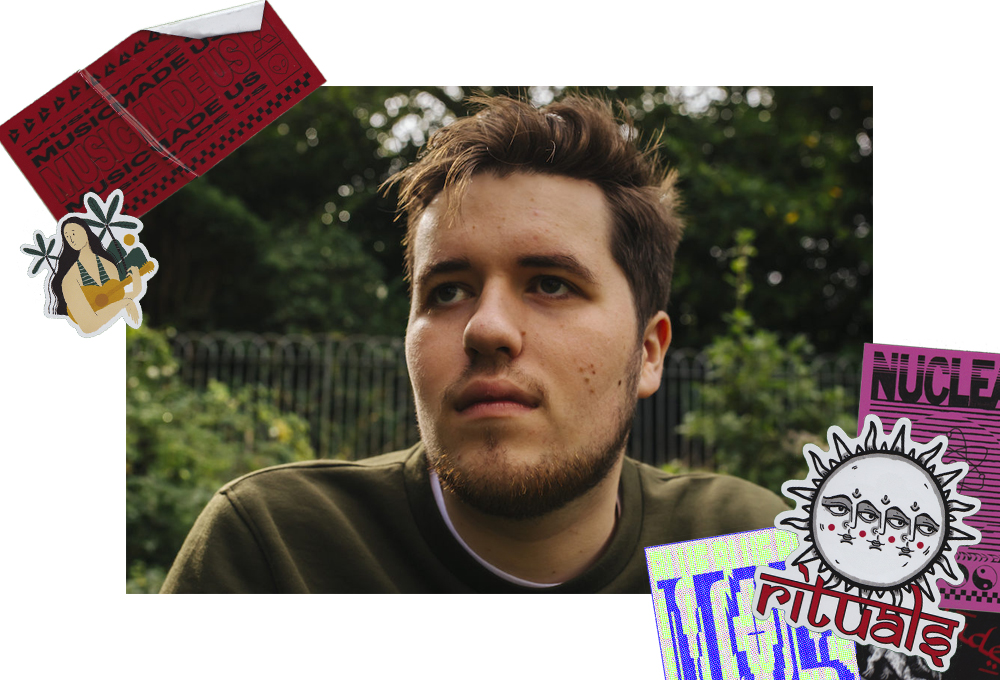As part of our Music Made Us campaign, creatives, music professionals, experts and journalists reflect on how music has been there for us through good times and tumultuous periods that inspire change. Throughout generations, music has sparked, supported and commented on movements, memories and moments in time.
Our contributors explore these events’ relationship with music – from the 1992 LA riots to the UK’s 80s acid house and rave scene and today’s Black Lives Matter movement. Here, alumna Kym Thomas revisits one of her BIMM research projects to explore Negro Spirituals from the 1800s as a coping mechanism for slaves, as well as their ongoing influence through Gospel music to this day.
I believe Negro Spirituals were a form of escapism; the freedom to express hope, peace and happiness for a better life on earth or beyond in another spiritual life. After daily harsh and brutal treatments, these songs were created and sung in the fields as a form of coping: a mechanism used during the difficult times of their life. These are songs that gradually transitioned through time into gospel music and are now a way of life for religious people when coping in hard times.
Today, people are not experiencing slavery as in the 1800s, but we encounter the harshness, bitterness and brutality of darkness through this increasingly challenging world. We understand the horrors that this life brings us as we struggle with illness, deal with the loss of loved ones, watch families succumb to separation and divorce, and struggle to make sense of many of the evil things in our society and culture.
“My experience of listening to or singing contemporary gospel music allows me to feel reassured, uplifted, empowered, positive and hopeful for the best in life.”
All of this does not lend itself to kindness and care towards humankind, but leaves individuals psychologically battered and broken. My experience of listening to or singing contemporary gospel music allows me to feel reassured, uplifted, empowered, positive and hopeful for the best in life. This is a coping method influenced and adapted from the experience of the slaves in the 1800s, transcending into modern-day life.
Negro Spirituals in the 1800s
“They were left with something as small, yet increasingly significant, as the gift of singing spiritual songs.”
It was said that slave owners felt that “religion was harmful to Negroes”, and as a result, they were punished if they were caught conducting religious services. Here was a group of people that already had nothing, and were denied the right to openly express their faith of Godly beliefs. Still, they were left with something as small, yet increasingly significant, as the gift of singing spiritual songs.

Whilst working in a field from dusk till dawn, they created hundreds of thousands of remarkable songs between them, which became the most valuable source of strength in their life. I wanted to prove that the inspiration the slaves had from simply singing Negro Spirituals was an effective coping mechanism; a way of dealing with the stress and pain that was violently dealt out to them through physical and emotional suffering.
The Healing Effects of Music
Research has proven that music therapy is an effective treatment for various mental and physical disabilities (Silverman, 2015). The effects of music therapy on the human brain using different music-focused coping strategies work differently for everyone. Some people can listen to the same song and suffer from increased stress, while others may find it relaxing and therapeutic. With this approach, I recognised how slaves received music, how the human brain allowed them to be evoked by singing spirituals and why it may have helped them cope effectively.
“The slaves sang in their groups to communicate solidarity and build strength among them, latching onto a promise that better will come.”
However, from the psychological perspective, patients were encouraged to sing in groups or choirs to enhance socialisation, reducing isolation. It is clear that singing as a group creates a sense of community and encourages strength and confidence collectively. The slaves sang in their groups to communicate solidarity and build strength among them, latching onto a promise that better will come.
Proving Gospel Music’s Positive Force
I felt inspired to prove that listening to gospel music can have a physiological impact and can slow down the heart rate or keep it at a consistent pace. This approach in my research project will not only prove that the result of this is measurable and can influence mood, but that it can link to how slaves may have used spirituals as a coping mechanism for the cruelty, malice and bitterness that was experienced in the time of slavery.
The rationality of this approach allowed me to compare the physical and emotional effects that music has on the participants by studying their blood pressure and heart rate measurements. In conclusion, I proved that listening to fast, upbeat music such as indie rock and RnB accelerates respiration and heart rate while listening to slow meditative music such as gospel has the complete opposite effect.
From this study, I have learned that the transition of Negro Spirituals from the 1800s to gospel music today has positively influenced people’s mood in giving them the ability to cope and appreciate a better quality of mental state. It provides escapism from things we cannot control in life and improving on the things we can control. This gives a sense of peace and contentment with a firm and positive belief that better things will come, as they believed in the time of slavery.
Ultimately, exploring how Negro Spirituals gracefully transitioned into gospel music has opened up a broader understanding for me in recognising how human beings can develop the skills to communicate the inspiration of trust in faith through music. It allows them to spread a sense of hope, and a determination to view life with resilience. This is a collective movement of people who chose to see a better life beyond their sad and broken disposition, with a firm desire to pass the inspiration down through generations and beyond. And today, we are touched significantly by the sound of gospel music throughout the globe.
I can say that writing this research at the time was challenging but immensely rewarding. I have learnt the importance of rising above society’s hostility by listening to and singing gospel music, and more so attending to my ancestors who have been swept away by the mercilessness of slavery. Yet in the time of their existence, they found a place of peace and contentment through the power of Negro Spirituals.
WANT TO FIND OUT MORE?
Here’s a reading list of books that help tell the story.
- Darden, R.(2004) People Get Ready: A New History of’Black Gospel Music. London: Continuum International
- Dobbs, D(2008) A Musician Who Performs With a Scalpel
- Epstein, D. (1977) Sinful Tunes and Spirituals – Black Folk Music to the Civil War. University of Illinois Press
- Haas, R. Brandes, V (2008) Music That Works: Contributions of Biology, Neurophysiology, Psychology, Sociology, Medicine and Musicology. 2009 edtn.
- Holt, B (2017) Do different types of music affect the heart rate?
- Mcdonald, H (2017) The Record Labels’ Role In The Music Industry
- Picard, A (2003) Classical music: Therapy for people who love classical music too much
- Running Songs (2018)
- Silverman, M.J (2015) Music Therapy in Mental Health for Illness Management and Recovery. Oxford: Oxford University Press
- Sreejesh, S. Mohapatra, S. Anusree M.R (2013) Business Research Methods: An Applied Orientation. Switzerland: Springer International
- Survey Monkey (2018) How to analyse survey data
- Questback (2015) 7 Reasons to Use Open-Ended Survey Questions
Our Music Made Us campaign is told through the students, graduates, journalists, experts and passionate people who have been shaped by music. Discover their stories here.



